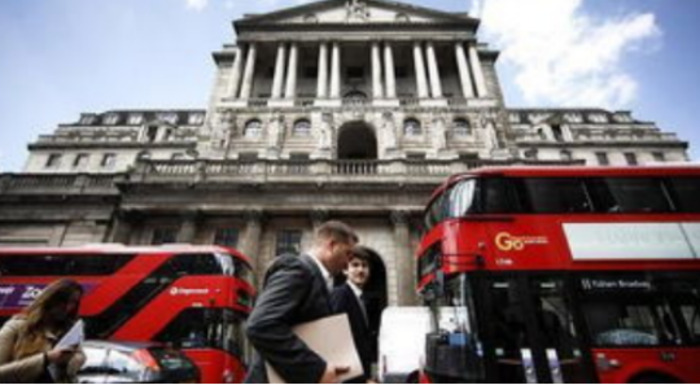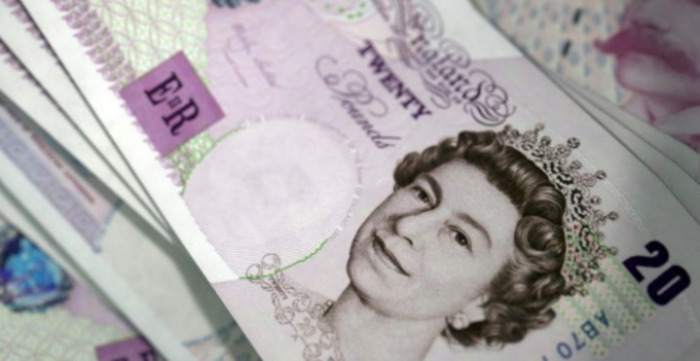The Bank of England raises interest rates as scheduled, the pound and the United States shock
 2022-11-04
2022-11-04
 1132
1132
[The Bank of England raised interest rates by 75 basis points as scheduled]
The Bank of England raised interest rates by 75 basis points to 3.00%, in line with market expectations and the largest rate hike in 33 years. The Bank of England has raised interest rates eight times in a row since December last year, the highest level since November 2008. The rate hike was not unanimously supported, and the pound was shocked by 75 points in the short term.
Bank of England interest rate decision: The highest interest rate may be lower than the level implied by the market. The UK is currently in a recession that will last until 2023. If interest rates follow the market curve, the Bank of England expects a two-year recession.
[Inflationary pressure has increased, and may reach a peak of 11% in the fourth quarter]
Uncertainty surrounding the outlook for retail energy prices in the UK has somewhat eased following further government intervention. If the outlook points to rising inflationary pressures, the Monetary Policy Committee will respond forcefully if necessary. Inflation peaked at around 11% in Q4 (September forecast: peak “just below 11%” in October 2022), CPI expected to be 2.2% in Q4 2024 and 0.8% in Q4 2025 .

【GBP is challenged】
The pound also seems to be challenged by two other aspects: one is the international investment environment, the US stock market fell 2.5% yesterday, because the Fed may raise the terminal interest rate to a higher level; Nervous as the new government struggles to fill its borrowing gap.
[The Bank of England has been facing political and financial market turmoil]
The Bank of England has faced political and financial market turmoil since its September policy meeting. Former Prime Minister Truss' government rolled out an unfunded 45 billion pound ($52 billion) tax cut package aimed at avoiding recession and spurring long-term growth. But the results backfired, with the pound falling to a record low against the dollar, forcing the Bank of England to shore up bond markets and prompting Truss to resign.
[Many members believe that raising the interest rate to 3% is reasonable]
At the meeting, seven members felt it necessary to raise the bank interest rate by 0.75 percentage points to 3%. The committee members believed that a further and stronger monetary policy response was warranted while the labor market remained tight and cost and price pressures were rising. There are continuing signs of firmer inflation in domestic prices and wages, which could point to a longer duration of inflation.
Announced fiscal policy, including the Monetary Policy Committee's working assumption on continued fiscal support for household energy prices, will also support demand compared to the Committee's August forecast. Overall, the sharp hike in bank rates at this meeting will help bring inflation back to the 2% target sustainably in the medium term and reduce the risk of longer and more costly tightening later on.
[UK failed to deal with many problems in economic shock]
Rachel Reeves, Labour's shadow chancellor, said: "The UK is uniquely at risk from an economic shock of failing to address more than a decade of sluggish growth, low productivity, underinvestment and widening inequality." Higher interest rates will mean the budget Already-strapped households will be hit by higher mortgage costs, which means higher financing costs for businesses and, for many companies that have struggled for years, will mean extremely difficult decisions about whether to stay in business. "

[Energy prices increase UK trade deficit by 2%]
The UK government's energy subsidies are now known to end in April next year. Economic conditions in most advanced economies have deteriorated as global energy costs have risen sharply as Russia faces widespread sanctions over its invasion of Ukraine. Soaring energy prices have exacerbated Britain's long-standing current account deficit. Energy prices have increased the country's trade deficit by nearly 2 percent of gross domestic product over the past year, while causing a historic squeeze on household incomes. UK real wages fell at a record pace in the second quarter.
The above information is provided by special analysts and is for reference only. CM Trade does not guarantee the accuracy, timeliness and completeness of the information content, so you should not place too much reliance on the information provided. CM Trade is not a company that provides financial advice, and only provides services of the nature of execution of orders. Readers are advised to seek relevant investment advice on their own. Please see our full disclaimer.

CM Trade
As a world leading financial trading platform, CMtrade Provides comprehensive one-stop trading services and opportunities for traders.
[Products]
The platform provides over 32 kinds of popular financial products such as forex, precious metals, crude oil, indices, cryptocurrencies and more.
[System]
2 top trading systems CM Trade MT4 / CM Trade APP, powerful and easy to operate
[Service]
Comprehensive market news, professional market analysis, 7*24 hours online customer service
[Advantage]
Low cost, high leverage, flexible one-stop all day two-way trading.
[Authority]
Licensed and strictly regulated by authorities. Traders deposits are independently kept by the bank. Fast deposit and withdrawal. Fair, efficient and transparent trading environment.
CM Trade Mobile Application
Economics Calendar
MoreYou May Also Like



 简体中文
简体中文
 ภาษาไทย
ภาษาไทย
 繁體中文
繁體中文
 Indonesia
Indonesia











